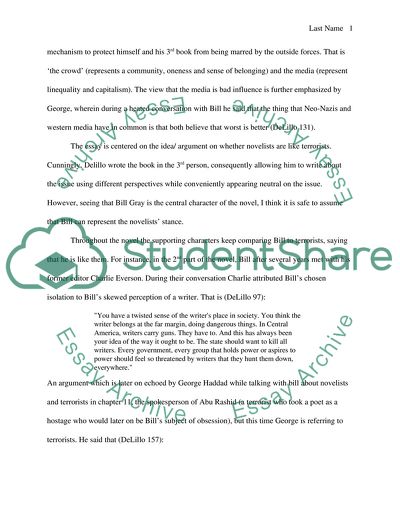Cite this document
(“The Future of Novelists and Terrorists: Mao II in Focus Essay - 1”, n.d.)
Retrieved from https://studentshare.org/literature/1430358-the-future-of-novelists-and-terrorists
Retrieved from https://studentshare.org/literature/1430358-the-future-of-novelists-and-terrorists
(The Future of Novelists and Terrorists: Mao II in Focus Essay - 1)
https://studentshare.org/literature/1430358-the-future-of-novelists-and-terrorists.
https://studentshare.org/literature/1430358-the-future-of-novelists-and-terrorists.
“The Future of Novelists and Terrorists: Mao II in Focus Essay - 1”, n.d. https://studentshare.org/literature/1430358-the-future-of-novelists-and-terrorists.


